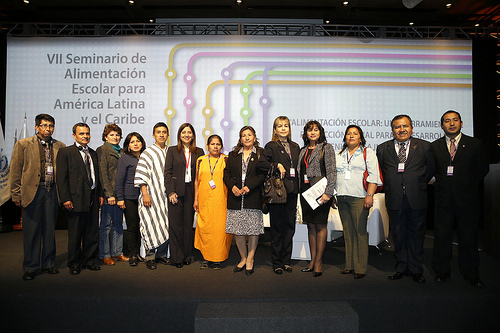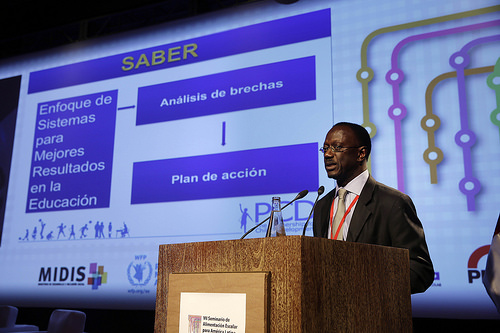 Leading regional and international school feeding experts have convened in Peru for the
7th Annual Regional Seminar for School Nutrition for Latin America and the Caribbean. Entitled "School feeding: a tool of social protection for sustainable development and social inclusion" the international conference provides a valuable platform for the exchange knowledge and expertise in the fields of school feeding policy, research and programme implementation.
Leading regional and international school feeding experts have convened in Peru for the
7th Annual Regional Seminar for School Nutrition for Latin America and the Caribbean. Entitled "School feeding: a tool of social protection for sustainable development and social inclusion" the international conference provides a valuable platform for the exchange knowledge and expertise in the fields of school feeding policy, research and programme implementation.
With an estimated 85 million children receiving a free meal every school day in the region school feeding programmes in Latin America and the Caribbean are becoming increasingly popular. The challenge facing governments is how best to support this continued growth whilst improving nutritional and food safety standards.
A key focus of the conference is on the strategies and tools available for governments to use to measure the impact of school feeding policies and programmes and the ways that they can further strengthen the implementation of their school feeding programmes.
The meeting brings together government delegations from more than 20 countries in Latin America, the Caribbean as well as experts from organisations such the World Bank, FAO,
Imperial College London's Partnership for Child Development, PAHO and others.
The conference is being hosted by the Government of Peru who coordinate the successfully QaliWarma National School Feeding Programme. The success of this programme has been facilitated by creating effective partnerships with both private sector companies and community stakeholders. Community empowerment and participation has been engendered through Purchasing and School Feeding Committees.

During the conference country delegations will undertake a
Systems Approach to Better Education Results or SABER exercise to identify the strengths and gaps of their school feeding and school health policies and programmes. SABER is a global benchmarking exercise developed by the World Bank with technical support from the Partnership for Child Development which enables countries to assess their policies against other countries.
A webcast of the meeting is available here

